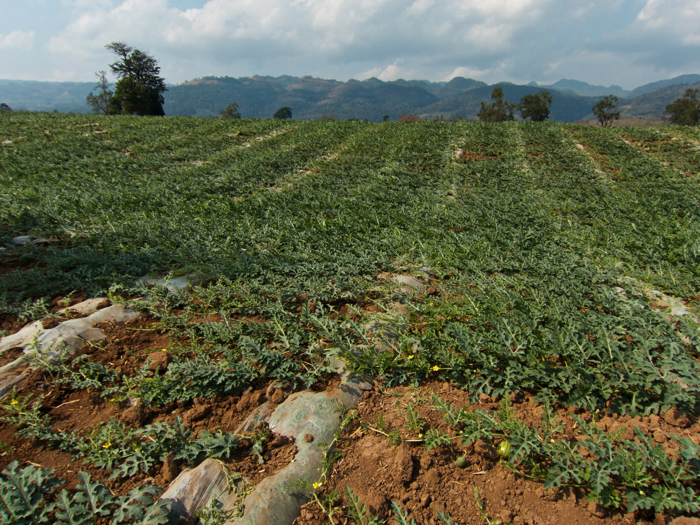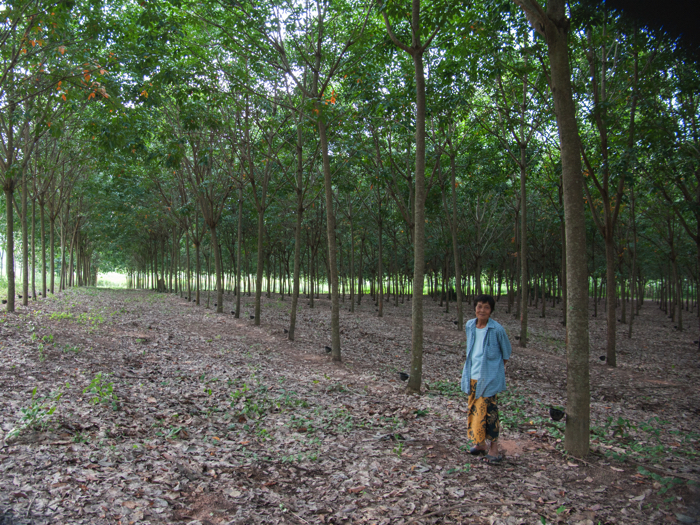- Project Leader : Yokoyama Satoshi(Nagoya University, Graduate School of Environmental Studies)
- Collaborators : Kono Yasuyuki (Kyoto University, Center for Southeast Asian Studies)
- : Tomita Shinsuke (Freelance Researcher)
- : Maniemai Thongyou (Khon Kaen University, Center for Research on Plurality in the Mekong Region)
Outline of Research
The purpose of the study is to clarify the various relationships that lie behind landuse changes which are rapidly expanding the areas of agro-forest products and plantation trees, a phenomenon caused by recent globalization in the Mekong region, particularly in Thailand, Laos and Cambodia. In order to realize this goal, we will examine existing studies such as those that deal with goods flows, LCA, and food chains to adapt a theoretical frame work to our resource chain study.
Purpose of Study
In the Mekong region, rapid land-use changes have occurred through the introduction of various agro-forest products that cope with the demands from external markets. However, we do not know how land-use changes impact on locals’ livelihood, regional society, and the natural ecosystem in the Mekong region. Therefore, this study will focus its attention on changes in land-use and resource chains of agro-forest products that occur through globalization in three countries, principally, Thailand, Laos and Cambodia. It will clarify the various relationships that lie behind land-use changes.
Significance of the Study
When countries, communities and individuals in the Mekong region were confronted with something new, how did they handle it and through what criteria? Throughout the Mekong region’s history, countries have developed subsistence strategies peculiar to social and natural environments in Mekong regions. In particular, they did not always yield to Western control, U.S. and Japanese invasions and Chinese hegemony. In this study, we aim to understand the proximate and remote causes, as well as the driving forces of changes in land-use and resource chains by newly introduced agro-forest products in the Mekong region. The originality and significance of this study is to conduct a way of sustainable land use from the viewpoint of locals.
Expected Results
The following two outcomes are expected:
1.The prediction of both socio-economic and ecological changes in the study area by clarifying resource chains and the various relationships that lie behind land-use changes brought about by globalization.
2.The creation of socio-economic, ecological and political guidelines for the management of resources (i.e. control of production, distribution and consumption) by clarifying the changes in land-use and regional society after introducing new agro-forest products resource into the Mekong region. This study will provide a path towards an appropriate resource use and management so that locals can properly manage and sustainably use the resources for their own purposes.
 Contract farming of watermelon with Chinese firms in northern Laos |
 Para-rubber plantation site at Udon Thani suburb in Northeastern Thailand |
